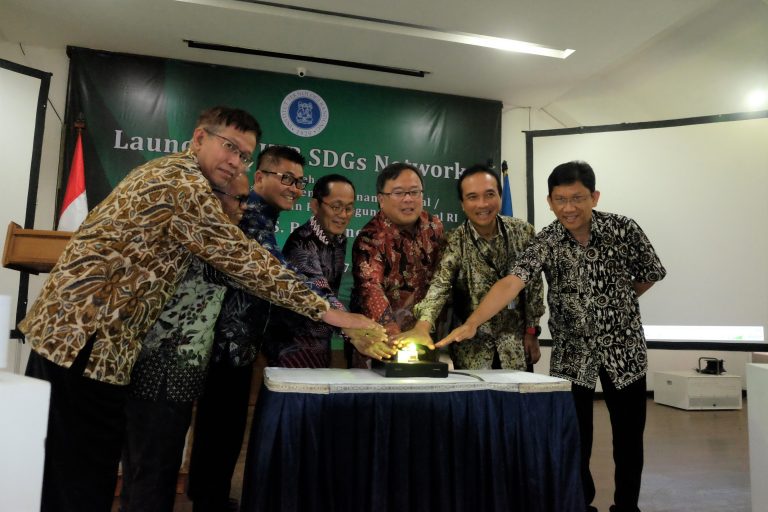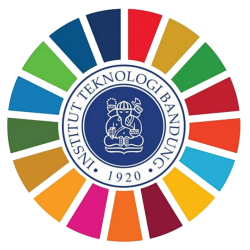About ITB SDGs Network

As a continuation of the last ITB 88 reunion which raised the theme: “Towards Zero Carbon”, the Bandung Institute of Technology is now launching ITB SDGs Network. The launching of ITB SDG Network was carried out by the Rector of ITB together with the Minister of National Development Planning / Head of Bappenas who is also the national coordinator of the Indonesian SDGs. The Head of Bappenas on various occasions has expressed his hope that ITB alumni in various sectors are collaborating with researchers in the ITB campus environment in implementing appropriate technology to support the Sustainable Development Goals program. Now this expectation is realized in the form of ITB SDGs Network which will soon become the ITB SDGs Center.
On this occasion, ITB alumni alumni from 88 backgrounds from various backgrounds will present an emphasis on discussing the experience of speakers in practicing the principles of sustainable development in their respective work sectors. This discussion is intended to give an overview to the public in general and ITB alumni in particular that the principle of sustainable development can be applied to various aspects of life starting from very simple things such as energy savings at home or each workplace, or complex matters such as building plants electricity is distributed in disadvantaged areas throughout Indonesia.
ITB SDGs Network is expected to become a forum for discussion and collaboration between all ITB alumni and the ITB academic community with various stakeholders in Indonesia in realizing prosperity for all Indonesian people and low carbon development so that the earth as a shared house can be preserved for a better future for the future future generations. To realize the ideas of the ITB alumni and the ITB academic community. Bandung Institute of Technology as an institution of higher education that can be said to master the most scientific engineering is very important to be able to play a role in achieving these SDGs goals, a technological approach that supports SDGs cannot be denied must be involved for acceleration to the SDGs goals by 2030. At the time these SDGs centers only have activity products that are basically within the scope of community policy and structuring, there are no SDGs centers that have implementative and innovative technology products in Indonesia. Therefore, ITB as the best technical tertiary institution in Indonesia is needed to be able to support SDGs in Indonesia in terms of innovation and technology implementation in Indonesian society.
At this time PT. Sarana Multi Infrastruktur (Persero) has signed an MoU with ITB in support of the SDGs Indonesia One funding platform, which is the latest initiative of the Ministry of Finance to encourage sustainable development in Indonesia. As initial capital in the realization of these ideas, PT SMI has also signed a Memorandum of Understanding with Clean Power Indonesia (CPI) in conducting an assessment to replicate the offgrid electricity model developed by CPI to automate biomass production for electricity generation with non-land / forest restoration. productive. PT SMI also signed a Memorandum of Understanding with Engie, a renowned Renewable Energy company from France that has experience building solar power plants (PLTS) for remote villages in Africa and Asia. PT SMI’s partner, the Global Green Growth Institute (GGGI) has also agreed with PT PLN (Persero) in conducting a feasibility study to electrify remote areas in Kalimantan in particular and remote areas in Indonesia in general.
With a strong initial capital from the ITB88 alumni reunion event, it is hoped that the ITB SDG Network is not just a forum for discussion but will be a driving force for low carbon projects that are in line with Bappenas’ mission. With a strong network of stakeholders, ITB and Bappenas can make a real contribution in the national low carbon strategy. ITB SDG Network will also spearhead cooperation with similar international bodies at foreign universities. So that learning abroad can be well studied and applied in Indonesia by adjusting to national conditions.

